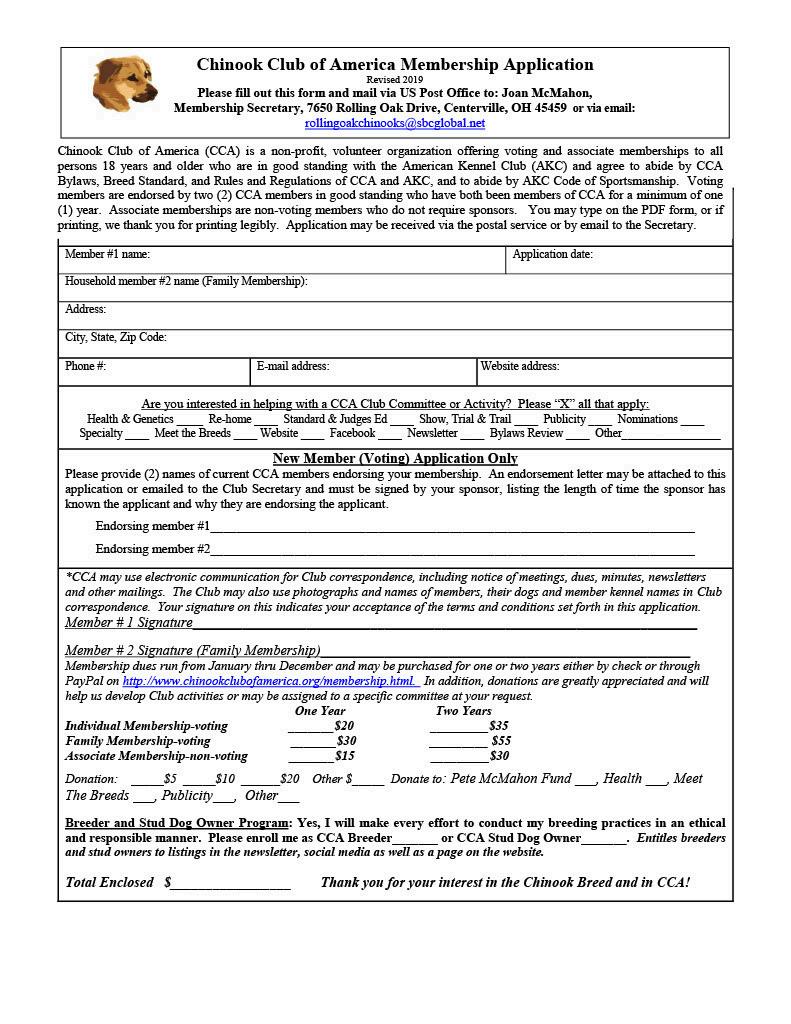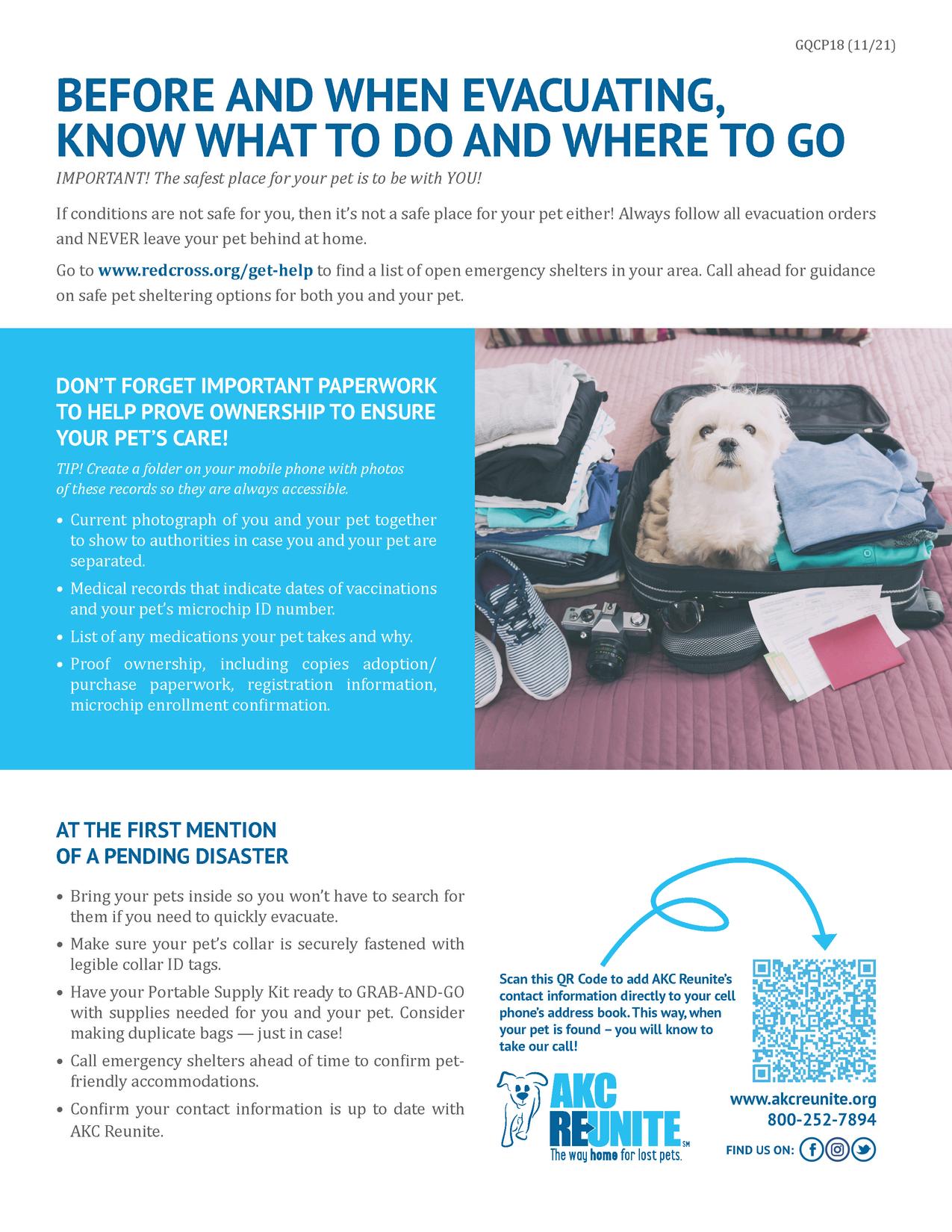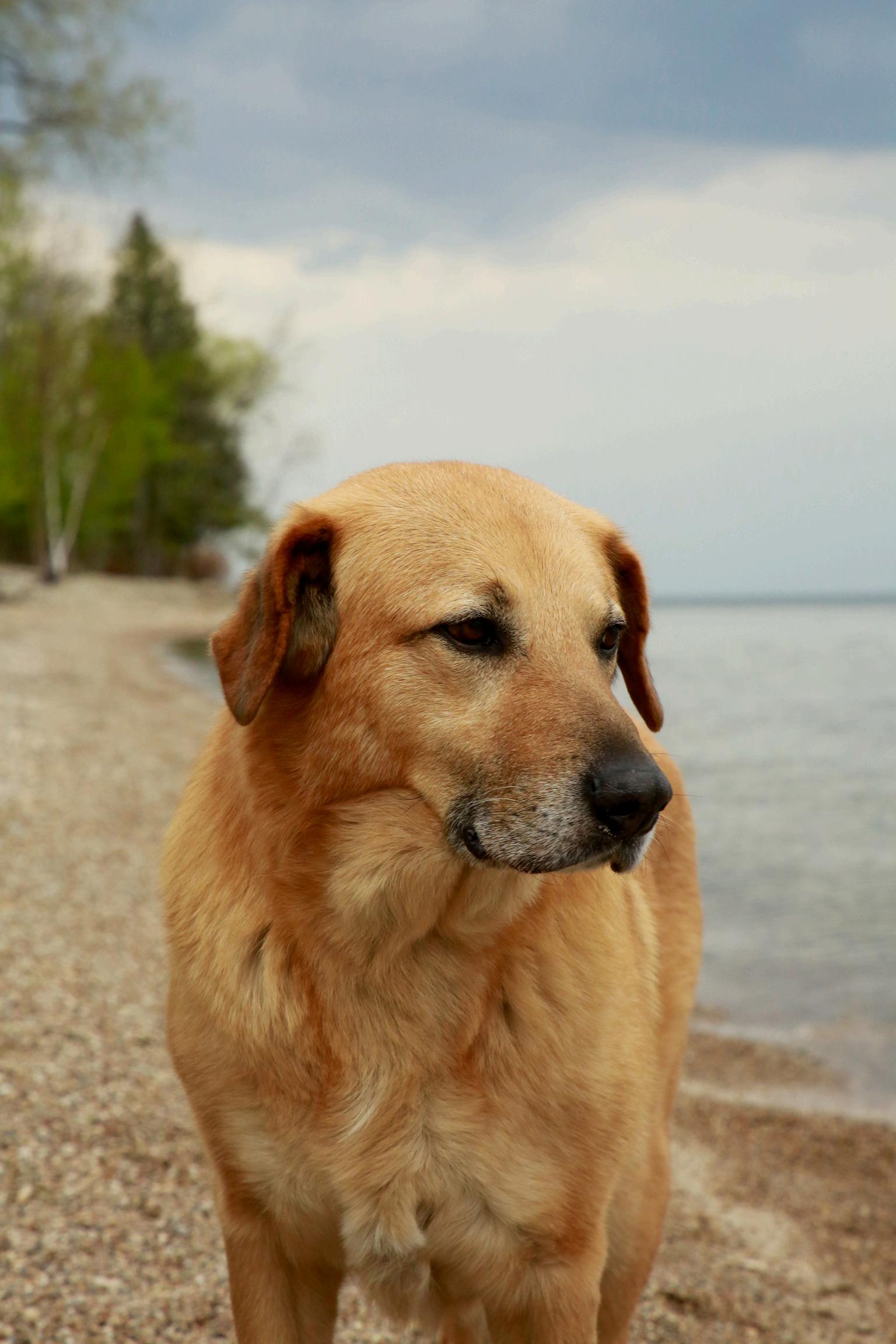
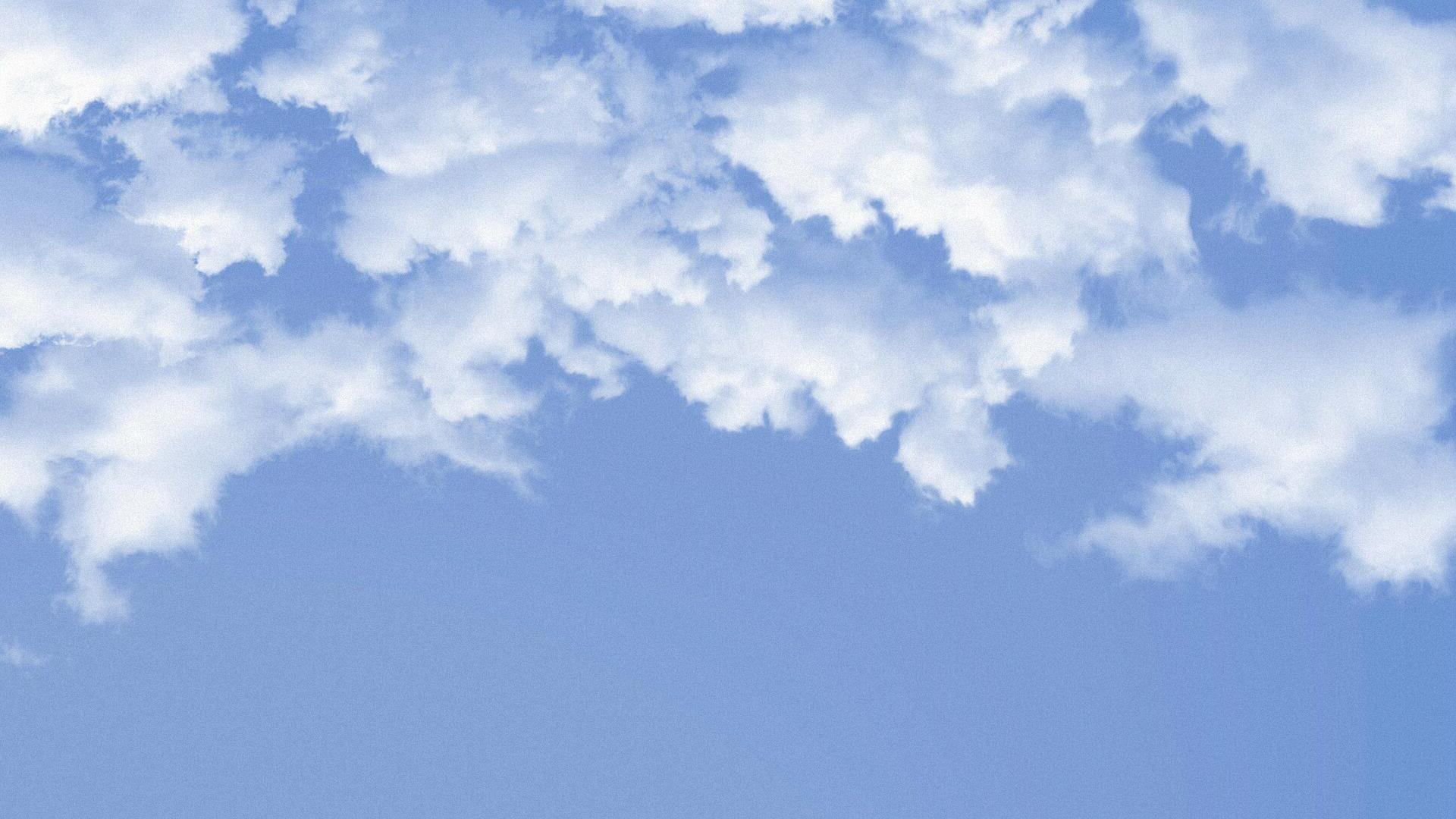






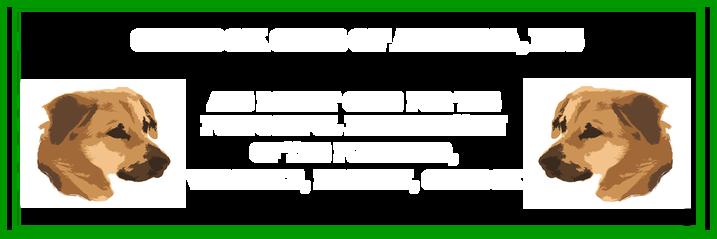










President KATHLEEN RILEY
Minnesota 612.558.1369 (Talk/Text) chinookclubofamerica vp@gmail com
Vice President PERRY RICHARDS Maine
Secretary HEATHER OSBORNE Connecticut 617-852-1666 chinookclubofamerica secretary@gmail com
Treasurer JO-ANN SMITH Connecticut chinookclubofamerica treasurer@gmail com
BOARD OF DIRECTORS
KEIRSTEN WAGNER (PA) - AT LARGE OPEN - HEALTH KIRSTEN LUDWIG (NH) - JUDGE’S EDUCATION JOAN MCMAHON (OH) - MEMBERSHIP OPEN - PUBLICITY PATTI RICHARDS (ME) - SHOW, TRIAL & TRAIL
Editor
KATHLEEN RILEY PO BOX 1824 Minnetonka, MN 55345-0824 612 558 1369 Talk/Text chinookclubofamerica vp@gmail com
Committee Members
WENDY MCCANCE
SARA TEMTE
JANET CRAM
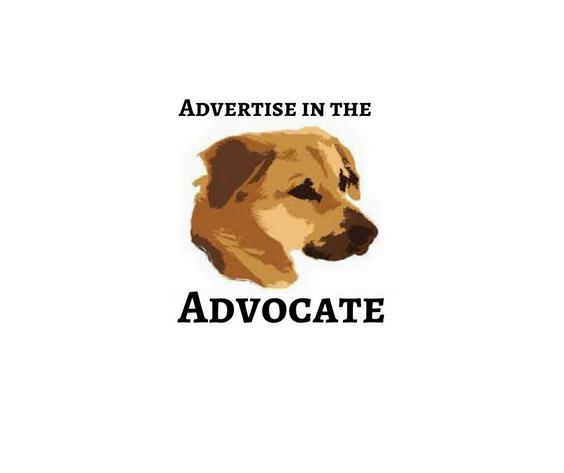
Recognition of Breed Standard: The AKC establishes and maintains breed standards for dog breeds, including the Chinook. Registering your dog with the AKC ensures that your Chinook meets the criteria set for the breed, contributing to the preservation and integrity of the breed standard.
Participation in AKC Events: Registering with the AKC allows your Chinook to participate in various AKC events and competitions, such as conformation shows, obedience trials, agility competitions, and more. This provides opportunities for your dog to showcase its abilities and skills while also allowing you to connect with other dog enthusiasts.
Pedigree Documentation: The AKC provides a pedigree for registered dogs, documenting the lineage and ancestry of your Chinook. This information can be valuable for breeders and helpful if you decide to breed your dog in the future.
Breeders' Network: Registering your Chinook with the AKC connects you to a network of responsible breeders and enthusiasts who share a common interest in the breed. This network can be a valuable resource for information, advice, and support related to your Chinook's care, training, and health.
Health Monitoring: The AKC actively promotes responsible breeding practices and encourages breeders to prioritize the health and well-being of dogs. By registering your Chinook with the AKC, you contribute to the overall health monitoring efforts for the breed.

Titles and Awards: Participation in AKC events allows your Chinook to earn titles and awards based on its performance in various competitions. These titles can be a testament to your dog's abilities and a source of pride for you as an owner.
It's important to note that while AKC registration offers these benefits, it's not a guarantee of the quality or health of an individual dog. Responsible breeding practices, regular veterinary care, proper training, and a loving environment are crucial factors in ensuring the well-being of your Chinook, regardless of registration status.
By: Nancy Reyes, CNWI

Have you ever watched your dog enjoying the world of scents, nose to the ground, and tail wagging? Dogs are natural-born sniffers, and now there's a sport that celebrates their incredible olfactory abilities. It's called canine Scent Work!
In this exciting activity, dogs can use their noses to detect specific odors, locate hidden targets, and earn rewards (food and/or toys) for their successes. Founded in 2006 in Southern California, the National Association for Canine Nose Work (NACSW) was established by Ron Gaunt, Amy Herot, and Jill Marie O'Brien. Their innovative approach to canine nose work has taken the dog world by storm, inspiring other organizations, including the American Kennel Club (AKC), to adopt similar activities. The AKC now calls it Scent Work, recognizing the immense popularity and benefits of this engaging and rewarding activity for dogs and their handlers. It's time to let your dog's inner detective shine and start a sniffari adventure!
Scent work offers numerous benefits for all dogs by leveraging their sophisticated olfactory system, which has up to 300 million receptors. This powerful sense of smell triggers memories and emotions, making scent detection highly engaging for dogs. Repeated exposure to specific odors can lead to learned associations, enhancing their search behavior.
To excel in scent work, dogs need independence, a strong drive to hunt, and problem-solving abilities. Training starts by encouraging dogs to search for their favorite food or toy, boosting these skills. This approach is particularly beneficial for anxious dogs, providing a positive and reassuring introduction to the sport.
Associating the odor with a rewarding experience maintains high levels of enthusiasm and drive, keeping dogs engaged and excited about scent work. This motivation leads to more effective training sessions and better overall performance
Here are some additional reasons why Scent Work is great for your dog:
Scent Work provides significant mental challenges for dogs, keeping their minds active and engaged. This mental stimulation is essential for maintaining a dog's cognitive health and preventing boredom. Additionally, searching for scents involves physical movement, which helps keep dogs fit and healthy. Combining mental and physical exercise ensures comprehensive dog enrichment, promoting overall well-being.
Scent Work allows dogs to use their natural scent-tracking abilities, which is inherently satisfying and fulfilling for them. It taps into their instinctive behaviors, giving them an outlet to express and practice their natural talents in a structured and rewarding way. This fulfillment of instincts keeps dogs happy and contributes to their mental and emotional health.
Participating in Scent Work requires cooperation and communication between dogs and handlers, strengthening their relationship. The teamwork involved in training and searches enhances mutual understanding and trust. Engaging in a shared activity provides quality time together, further enhancing the bond and creating a deeper connection between the dog and the handler.
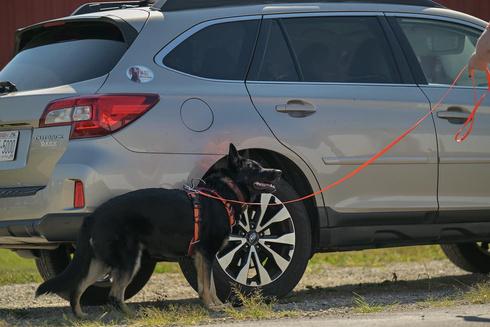
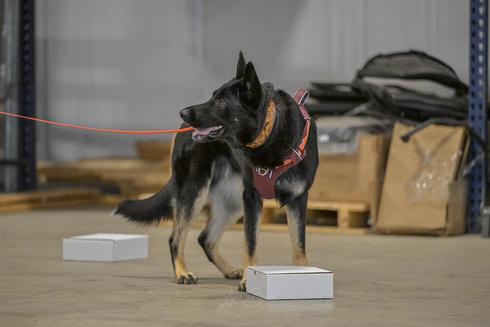
Finding scents and receiving rewards boosts a dog's confidence and self-esteem. The success they experience through Scent Work reinforces positive behavior and encourages them to take on new challenges. Navigating various search scenarios helps dogs develop resilience and adaptability, making them more confident in different environments and situations.
The concentration required for scent work can be calming for dogs, providing an outlet for nervous energy and reducing anxiety. It offers a constructive way to channel a dog's energy, helping prevent behavioral problems that stem from boredom or frustration. This focused activity can lead to a more relaxed and content dog, improving their overall quality of life.
Scent Work is designed to be enjoyable for dogs and handlers, making it a fun hobby. The activity's engaging nature ensures that both participants remain interested and motivated. The changing environments and search scenarios keep the activity interesting and challenging, providing endless opportunities for fun and learning.
Scent Work can be practiced almost anywhere, from backyards to urban areas, making it versatile. Its accessibility ensures that dogs of all breeds, ages, and skill levels can participate, allowing for gradual progression at each dog's own pace. This flexibility makes Scent Work an ideal activity for a wide range of dogs and handlers, catering to their specific needs and capabilities.
Scent work can be taught using food or toys as a reward. Initially, you'll need three to four boxes, and we will hide their favorite food or toy in only one of the boxes, encouraging the dogs to search for it. Since most pet dogs are accustomed to readily available meals, they must learn to hunt for food. This learning process happens quickly, and they soon understand the concept of searching for food or a toy. This method allows us to introduce various challenges and environments, taking them to different locations to search for food or a toy. There is much more to scent work, but getting dogs interested in searching and doing it in various locations is the most important first step.
Associating target odor with rewards that the dog enjoys fosters excitement, motivation, a strong drive to hunt, and independence in the dog. The duration of food-based training depends on the individual dog. Some dogs grasp the game quickly and transition quickly to target odors, while others with environmental issues or anxiety may require more time with food-based training. Building a solid foundation is crucial for success in any sport, and investing time in the beginning will pay off throughout the learning process. And not starting on food will NOT mean they will have problems with scent discrimination in the future. This transition to target odors is the easiest part of nose work.
A common concern is whether scent work might hinder a dog's performance in other dog sports. Don't worry… In fact, scent work can actually benefit dogs who participate in other sports. For instance, if a dog tends to be overly enthusiastic about sniffing, scent work can provide an outlet for this behavior. Consequently, these dogs often perform better in other sports, such as agility, conformation, rally, and obedience. While it may seem counterintuitive, teaching a dog to sniff through scent work can reduce the dog's desire to sniff excessively during other activities because scent work satisfies the dog's natural urge to sniff.
In conclusion, scent work offers many benefits, making it an ideal activity for dogs and their handlers. Dogs receive important mental and physical exercise by engaging in scent work, fulfilling their natural instincts, and building confidence. Handlers, in turn, enjoy strengthened bonds with their canine companions and the satisfaction of seeing their dogs thrive. Whether for fun, competition, or simply a different way to spend quality time together, scent work is a rewarding and versatile activity that enriches the lives of both dogs and their people. Sniff On!
What are the next steps to get started? Find a trainer who has coached a wide range of teams in scent work. Do you have questions? Need help? Email me at nancy@foryourk9.com
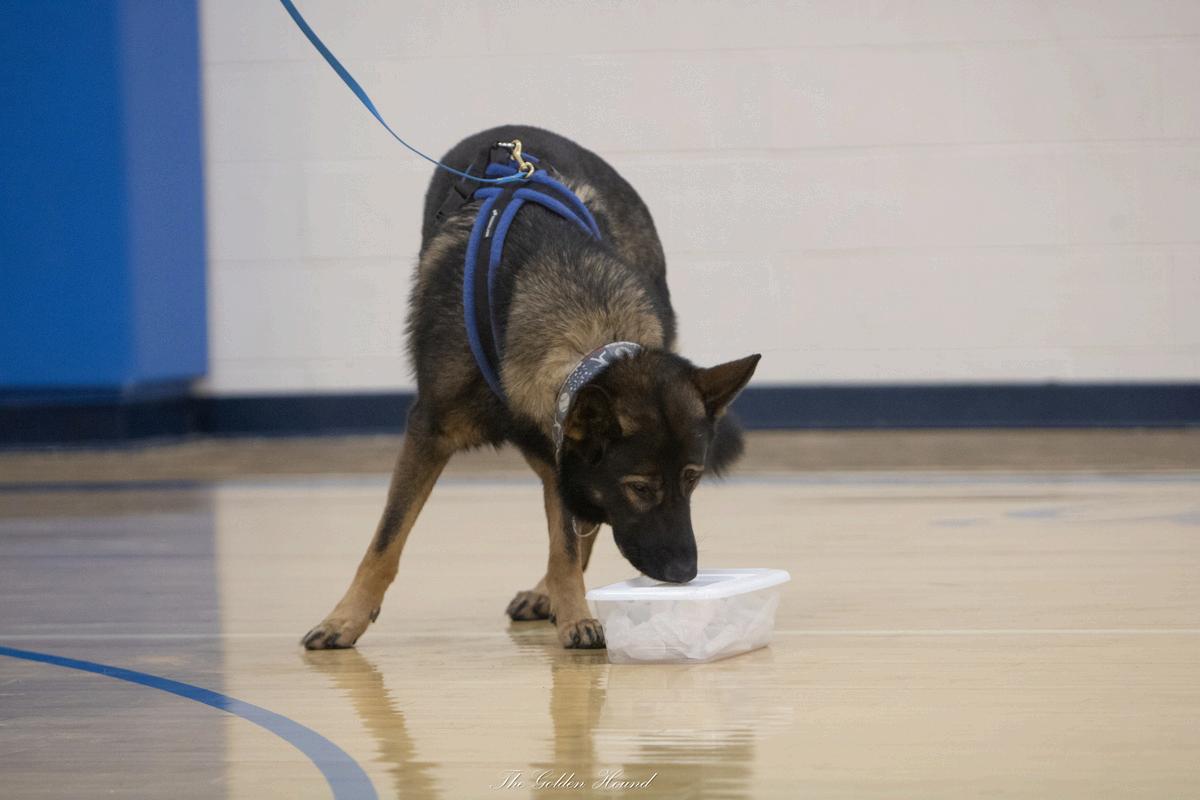
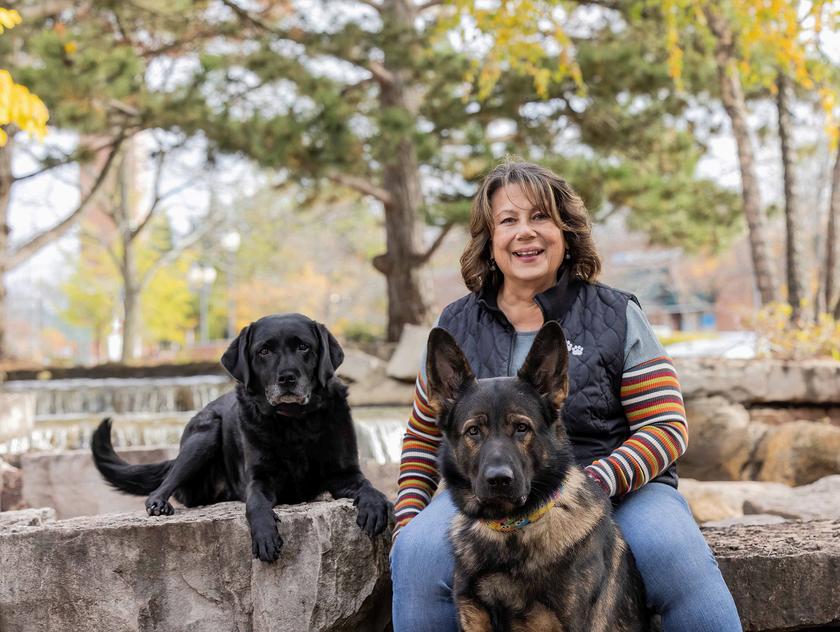
Nancy Reyes, CNWI, has been a professional dog trainer for 30 years, working with a wide range of behavior issues. Nancy, a seasoned competitor in various canine activities such as obedience and agility, is currently competing in nose work. She holds multiple roles within the canine nose work community, serving as a Certifying Official and Certified Instructor (CNWI) for NACSW (National Association of Canine Scent Work) and a CPE (Canine Performance Events) Scent Work judge and CWAGS (Canine Work and Games) judge.
She is an international speaker and presenter on the topics of behavior and nose work. Her travels have taken her to Japan and across the 50 states.
Furthermore, beyond her training expertise, Nancy is also a certified Mental Management Instructor, coaching dog-handler teams to achieve their performance goals across different dog sports.
Dear Chinook Fanciers,
I'm excited to be the president of the Chinook Club of America and eager to work with you to continue the legacy of our breed.
One of my goals is to promote unity within our greater Chinook community. The Chinook has a remarkable history, and it is up to us as stewards of this breed to ensure its continued success. Whether you are a long-time member or a newcomer, I encourage everyone to participate actively in the club's activities and initiatives. Your voices, experiences, and perspectives are invaluable.
Your Chinooks can be part of uniting the breed. The Chinook Club of America offers FREE American Kennel Club registration for any purebred Chinook registered with the United Kennel Club. The opportunity to register your Chinook with AKC ends in January 2025. The more Chinooks registered in AKC and UKC, the better our chances are for keeping unity and diversity in the breed.
I hope to meet many of you at events, online, or connecting over our shared love of the Chinook. Together, we can enhance our education, breed preservation, and outreach efforts so the next generation of Chinook owners and enthusiasts will feel as passionate about the breed as we do today.
Please feel free to contact me with any ideas or concerns. I'm committed to making the Chinook Club of America a welcoming and dynamic organization for all. Thank you for your support and dedication to this extraordinary breed.
I look forward to leading us toward a bright future.
Kathleen Riley President, Chinook Club of America

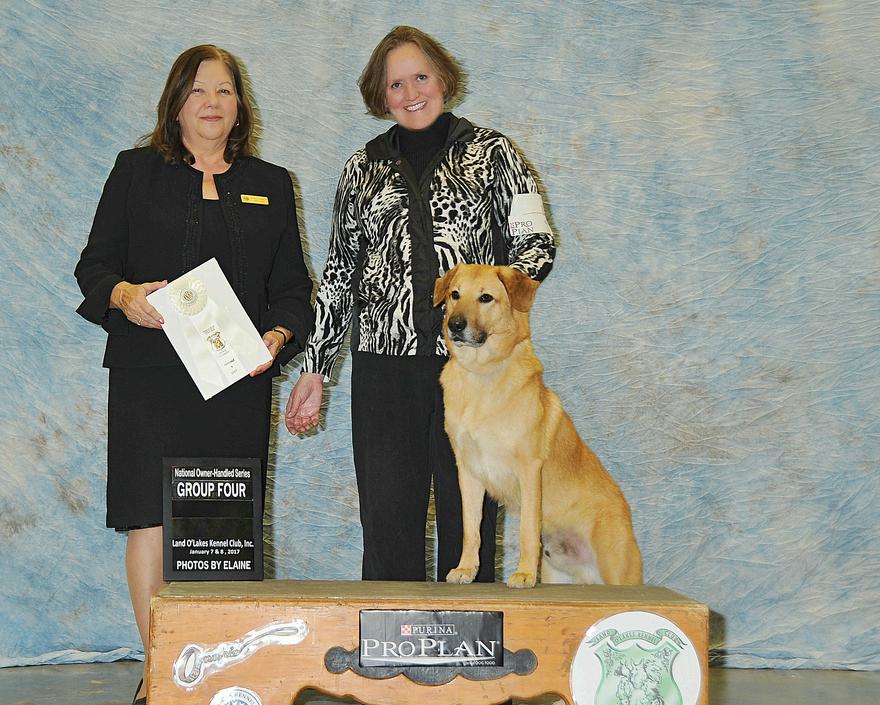
Left to

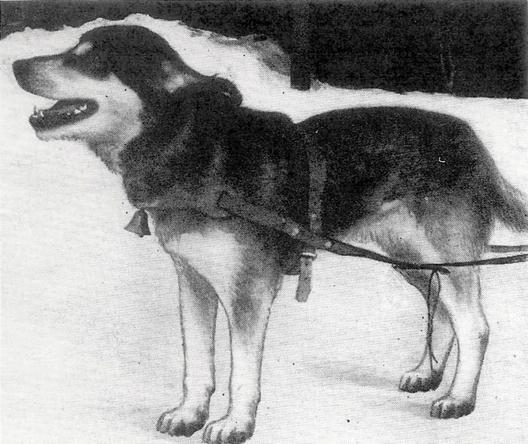
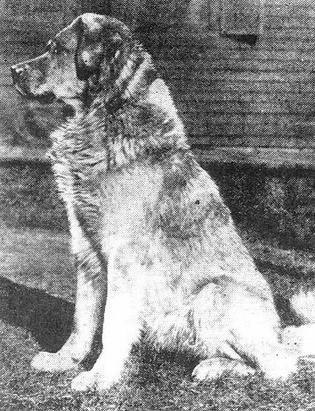
When Arthur Walden returned to New England from Alaska, he brought his love of dog sledding with him. Settling in Wonalancet, New Hampshire (a part of Tamworth), Walden bred a large mixed-breed mastiff-type farm dog named "Kim" to a husky dog named "Ningo." In 1917, the resulting litter of puppies had the first Chinooks.
As the puppies matured, they were precisely what Walden wanted in a dog: friendly, gentle, powerful, fast, and possessing great endurance. Chinook and his littermates were all these things.
Walden showed off Chinook's skills around New Hampshire and is credited with bringing the sport of dog sledding to New England. He promoted early dog sled derbies in the 1920s that he and Chinook frequently won. Walden was still seeking adventures, and he persuaded Admiral Richard Byrd to allow him to manage the dogs on the 1928 Antarctic expedition with one condition. No dogs were to be left behind in Antarctica. Walden insisted the dogs had to return, or he would not go on the Antarctic expedition, and Byrd agreed.
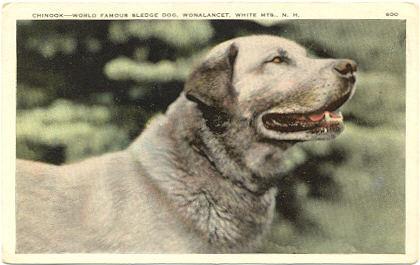
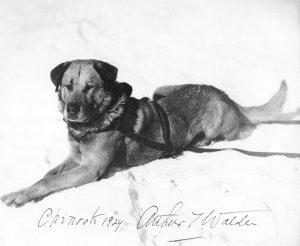

The South Pole
Walden's New Hampshire farm served as a training center for the human team members. Three Harvard students, Norman Vaughan, Freddie Crockett, and Eddie Goodale, who were set to participate in the journey, camped out in Walden's pasture in frigid January 1928 to harden themselves for the trip.
Byrd's plans to reach the South Pole were simple enough. He would travel by ship with animals and equipment, smash through the ice until he could land, and establish a camp called Little America. From there, he would explore using snowmobiles, dogsleds, and planes, including one in which he conducted his first flight over the South Pole.
The dogs, meanwhile, were the freight haulers, shuttling goods to and from the camps. Though the trip made Walden famous around the globe, it was different from the adventure he had hoped for. He told the media it was monotonous, so well-controlled and safe that it hardly seemed adventurous.
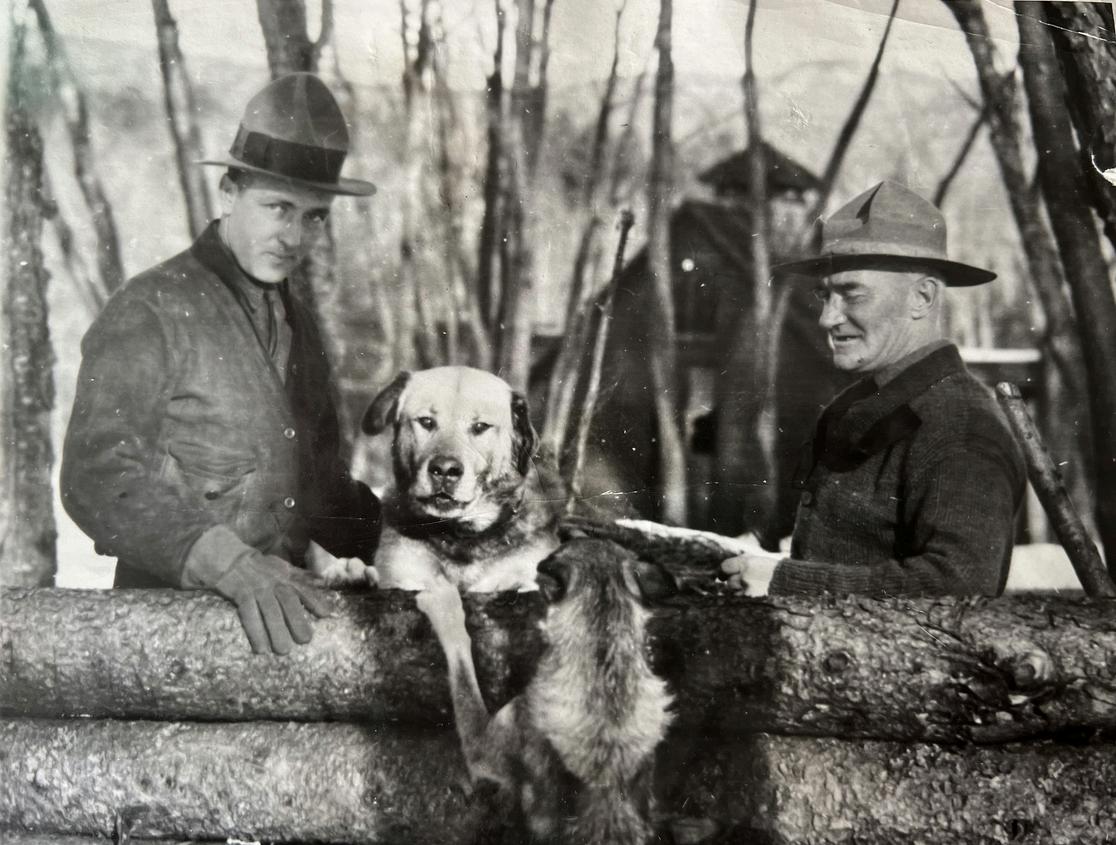
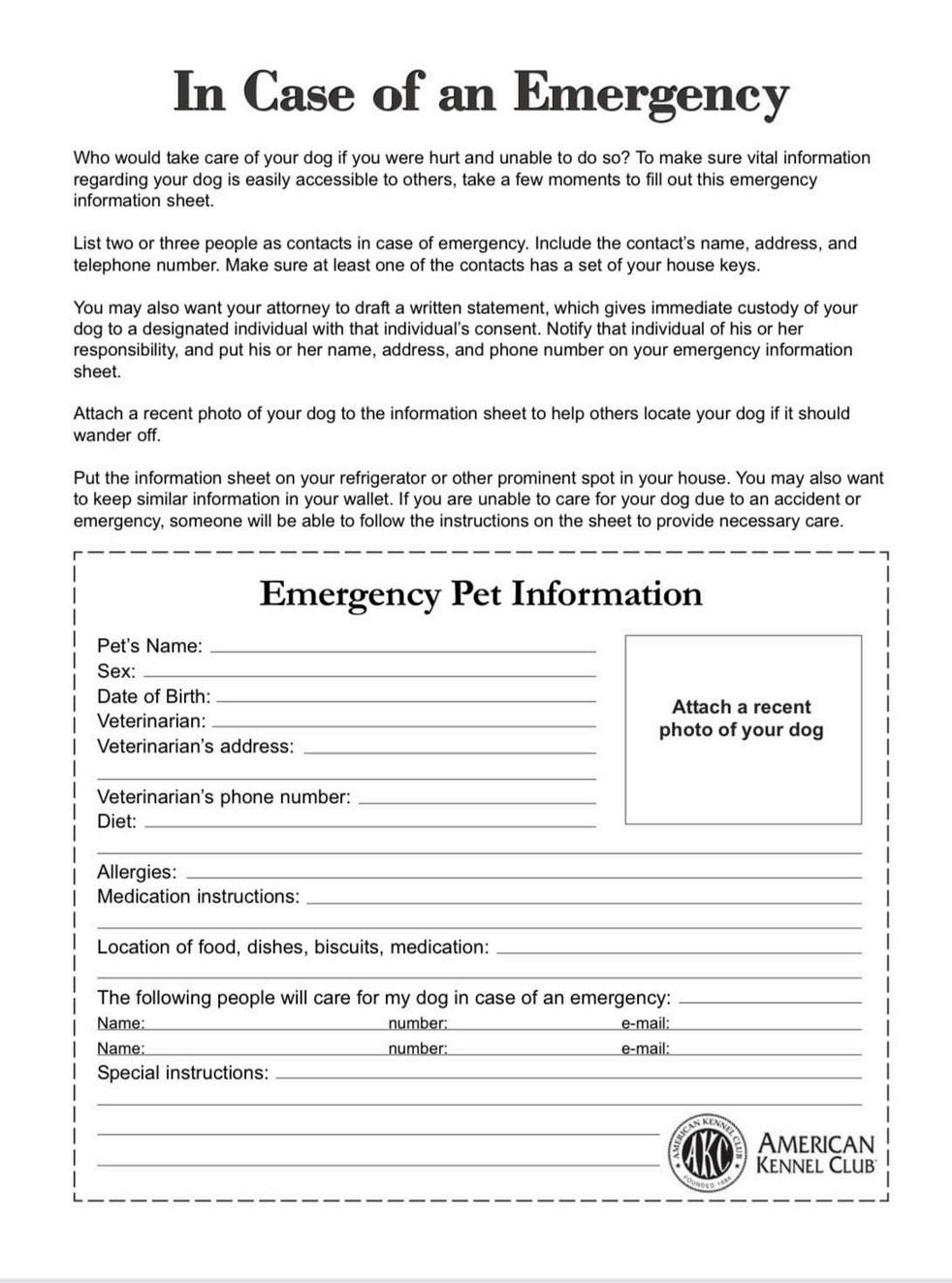
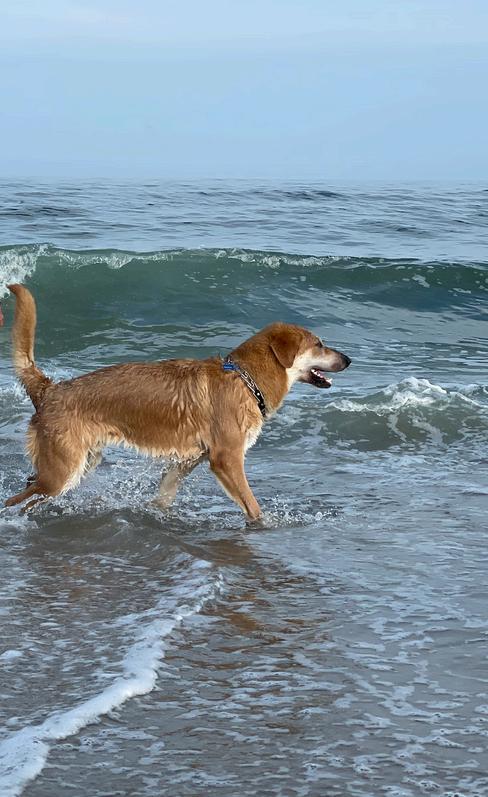
By: Marina Guvakova
As Autumn ends, I am delighted to share our experience raising a Chinook who loves swimming!
Born in Colorado, one of 10 in a litter, the 2month-old male pup arrived in Pennsylvania in April 2023 Because of his light coat and calm temperament, some nicknamed him "Yellow-Mellow." But because of his striking almond-shaped green eyes surrounded by dark liner, he was named Baikal, after Lake Baikal, Earth's deepest and oldest lake in Siberia
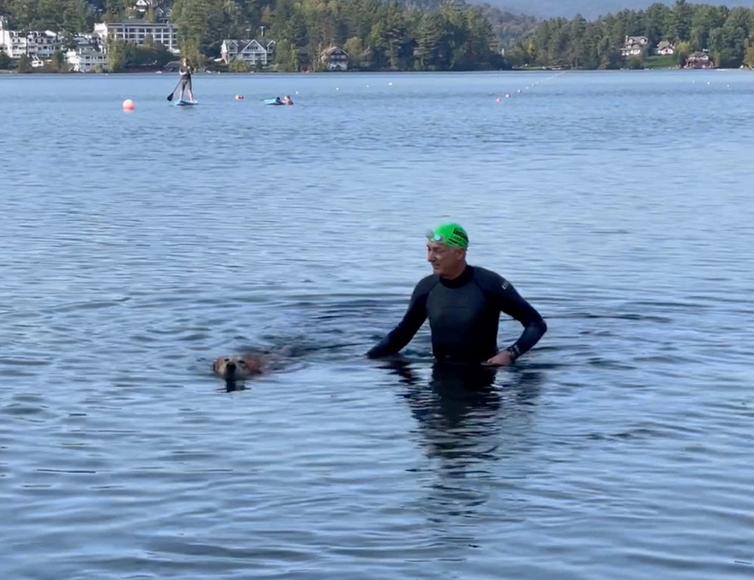
Baikal's first experience with a lake was the same Autumn we took him to Lake Placid, New York His natural curiosity led him to explore the hiking trails and water basins with his human family. At four months, he got his first swim lesson in Lake Mirror Whether he was fond of this swimming experience – who knows? But he was not shy of water for sure. By the age of 6 months, he waded through streams by himself and enjoyed submerging in the Atlantic Ocean at the dog beach in New Jersey. By the end of his first Autumn, he swam confidently by his human dad's side!
Fast forward to Spring 2024, as Baikal's winter sport is a separate story; he would not miss fun playing in any puddle or creek. The love for water sports was born in a oneyear-old Chinook pup, or at least we guessed so. This Autumn proved us right. Baikal grew up to be a good swimmer who outperformed his human dad in a sprint swim. The Chinook Dog, named after the lake, LOVES SWIMMING But Dad loves sailing too and is gearing Baikal up to sail with him We will see how this goes
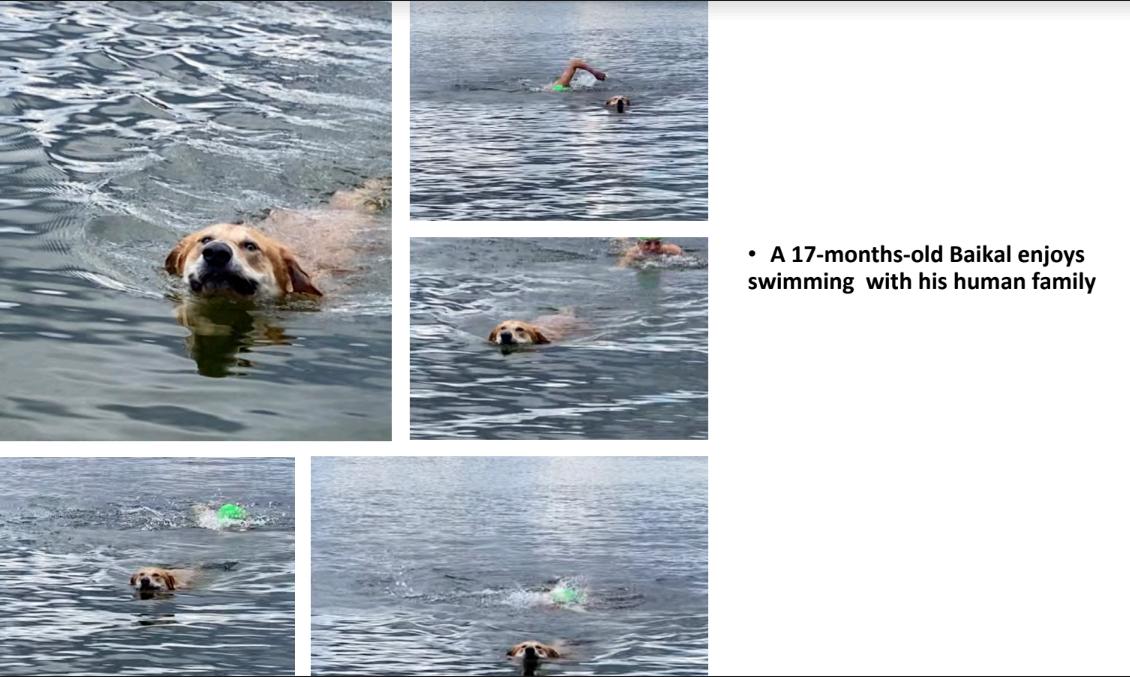
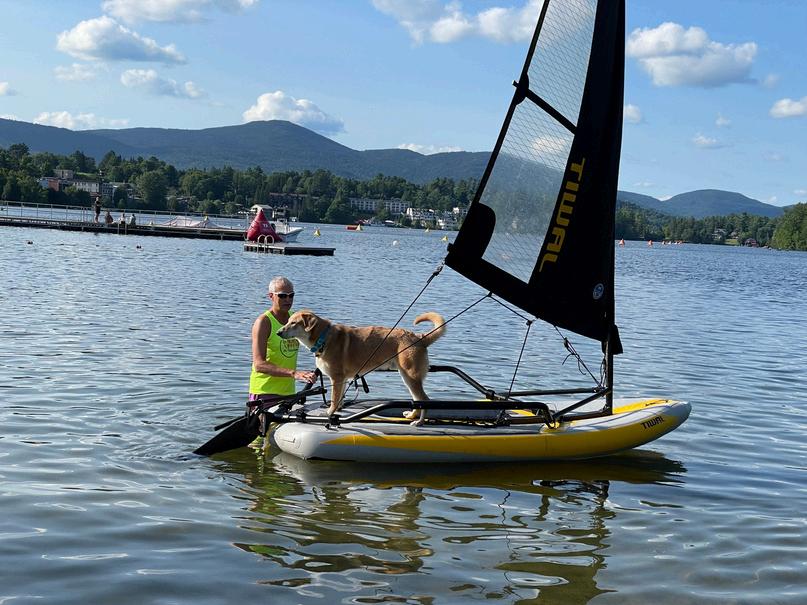
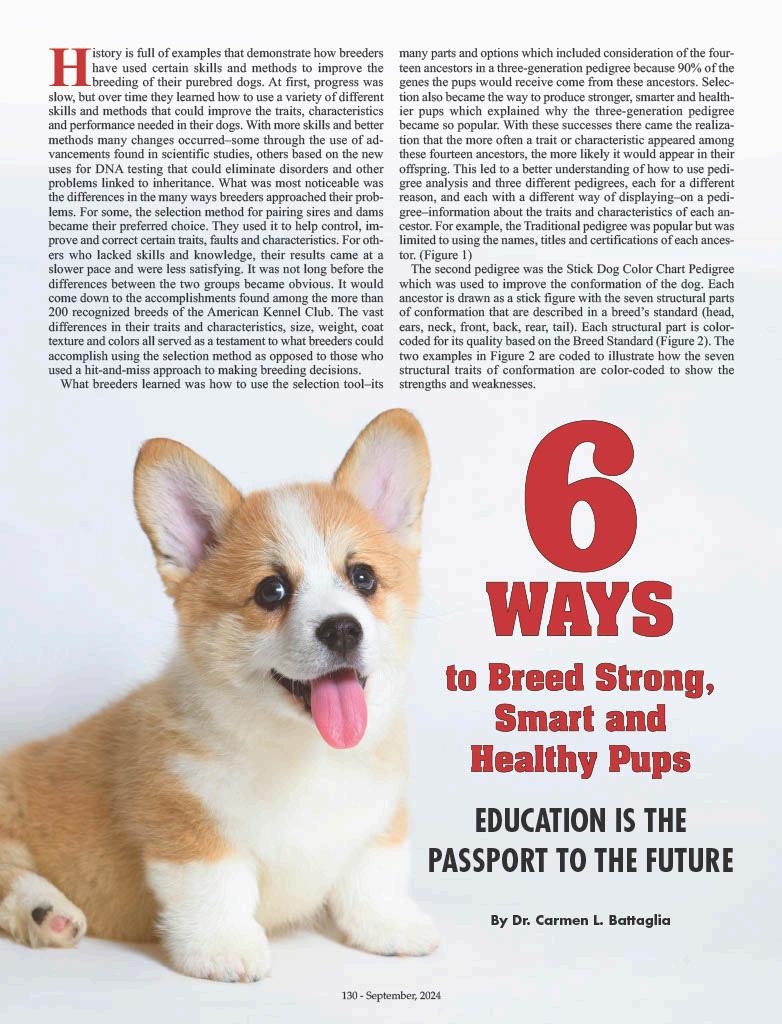
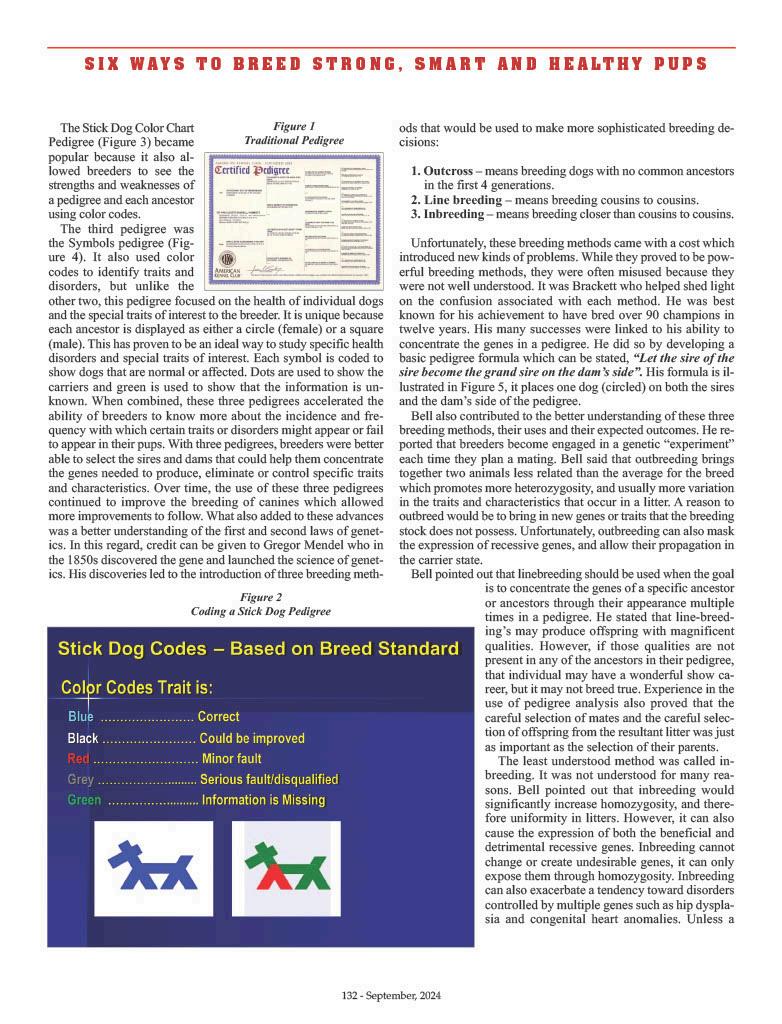


Champion
CH Platform's Keeper Of Wizards Sire: Desert Sol Pancho Dam: CH Rain Mountain
Sapata Song RN BCAT CGC TKI Owner: Sofia Leigh Cobian & Anastasia Logan Breeder: Anastasia Logan & Carie Taylor
Grand Champion
GCH CH Forever Greene Fly Me To The Moon Sire: Granite Hill Winnipesaukee Dam: CH Forever Greene Qannik CM CD BN RN NA NAJ OAP OJP NF TKN Owner: Mrs.
Kirsten I Ludwig & Alexander Ludwig & Dennis Ludwig & Virginia Burrell Breeder: Patricia Richards
GCH CH Platform's Dumbledore's Army CGC TKN Sire: Desert Sol Pancho Dam: CH
Rain Mountain Sapata Song RN BCAT CGC TKI Owner: Michael Schmidt & Anastasia
Rae Logan Breeder: Anastasia Logan & Carie Taylor
Agility FAST Novice Preferred
GCH CH Forever Greene Nahla VCD1 CDX BN RE OJP NFP CGC TKN Sire: Carrigain
Mountain Hyas Talapus Dam: CH Forever Greene An Affair To Remember OAP OJP NFP CAA ACT2 ACT2J CGC TKN Owner/Breeder: Patricia Richards
Dock Master
CH Forever Greene Sangiok Clover RI FDC CAA BCAT THDN RATM DS DJ CGCA
CGCU TKE ATT Sire: Skyland Harper Of Grtmtn Dam: CH Forever Greene An Affair To Remember OAP OJP NFP CAA ACT2 ACT2J CGC TKN Owner: Shelly Londer Breeder: Patricia Richards
Trick Dog Novice
Desert Sol Amor Del Cristo CGC TKI Sire: Ferncroft Blue Bird Day CGC Dam: Desert
Sol Zia Joy Owner: Tiina Perlman & John Perlman & Emily Perlman Breeder: Kristy Jolly & Jonathan Jolly
Trick Dog Intermediate
Desert Sol Amor Del Cristo CGC TKI Sire: Ferncroft Blue Bird Day CGC Dam: Desert
Sol Zia Joy Owner: Tiina Perlman & John Perlman & Emily Perlman Breeder: Kristy Jolly & Jonathan Jolly
Coursing Ability Excellent
Spook Nook Kala CAX DCAT Sire: Callicoon Ukko Dam: Moonsong Small Wonder CGCA
CGCU Owner: Matt McDonnell & Jean Bouteiller Breeder: Jean Bouteiller

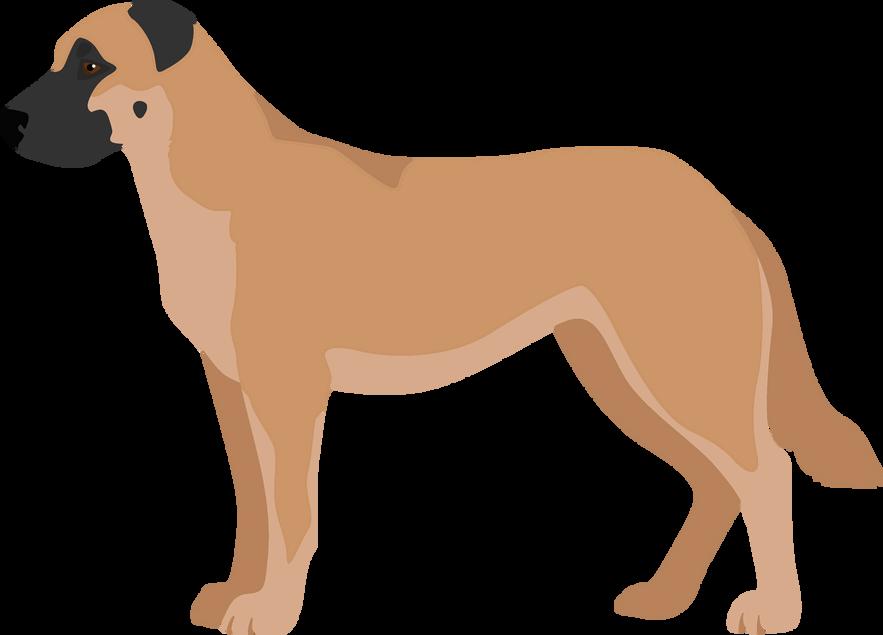

CCA Minutes - Sept 2024 - 6:30 PM Eastern - Submitted by Heather Osborne
In attendance: Kathleen Riley, Patti Richards, Kirsten Ludwig, Keirsten Wagner, Jo-Ann Smith, Heather Osborne
Appointing a vice president
Motion to appoint Perry Richards as Vice president
Motion presented and voted over email
In favor: Keirsten Wagner, Kirsten Ludwig, Jo-Ann Smith, Heather Osborne over email; Patti Richards in person
Reviewed and approved in this meeting
Keirsten approved to update the current website. Cheers!
Archiving of Historical Chinook Information - Bob Cottrell
Bob Cottrell is a Chinook fancier, a curator at Conway NH Public Library, and historian at the Tamworth NH History Center Bob has offered to help store our Chinook materials at these two New Hampshire facilities, and he is willing to add any Chinook, Sled Dog, and Polar Exploration materials to the archives at the Conway Public Library, as well as preserving and sharing historical items at the Tamworth History Center It is exciting to be able to archive these items in the Chinook’s area of origin!
Bob can not be appointed to any board position because the by-laws prohibit anyone from serving on both the COA and CCA boards simultaneously
Discussion included:
Review of locations and individuals who hold relevant records and/or memories, including Arthur Waldon’s niece
Recommendation to consult a lawyer to establish a memo of understanding or appropriate document that specifies that material will be owned by the CCA and is loaned only
Question: how will the material be protected? What about future archiving?
Heather volunteered to reach out to the Internet Archive about preservation and digitization, and may explore other avenues (University librarian contacts are wonderful)
AKC Medallion sponsorship update
AKC has confirmed payment The medallions should be at the Orlando show
Club debit cards - Move to October agenda
Showsight breed feature page - Are we interested?
Two questions: how hard is it to fill out the template? How much will it cost?
Kathleen will reach out to find out about cost and report back in October
Obedience Judges’ Education program is complete and published
All judges must meet the new quals, which looks like taking and passing tests depending on their level (open, utility)
Judges’ education coordinator symposium in Orlando
Friday, Dec 13 - Designed to “provide insight into creating an effective judges’ education committee”RSVP by Nov 15 - Cost to attend $35 - Kirsten is signing up
Next meeting: October 17


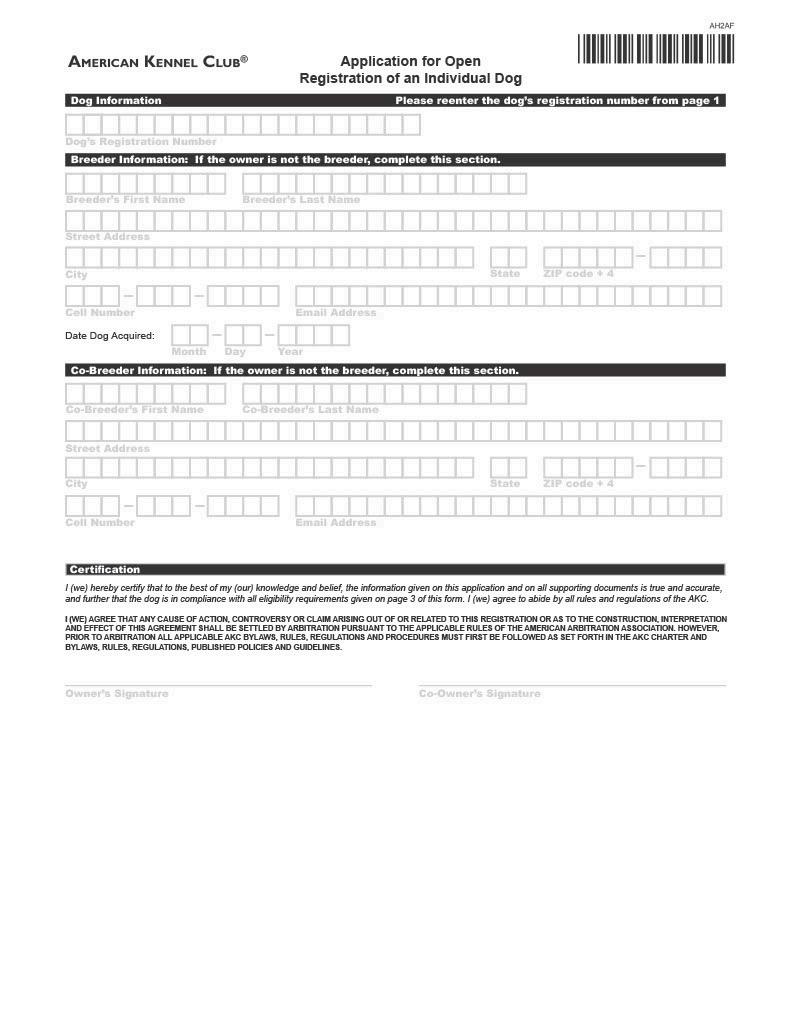
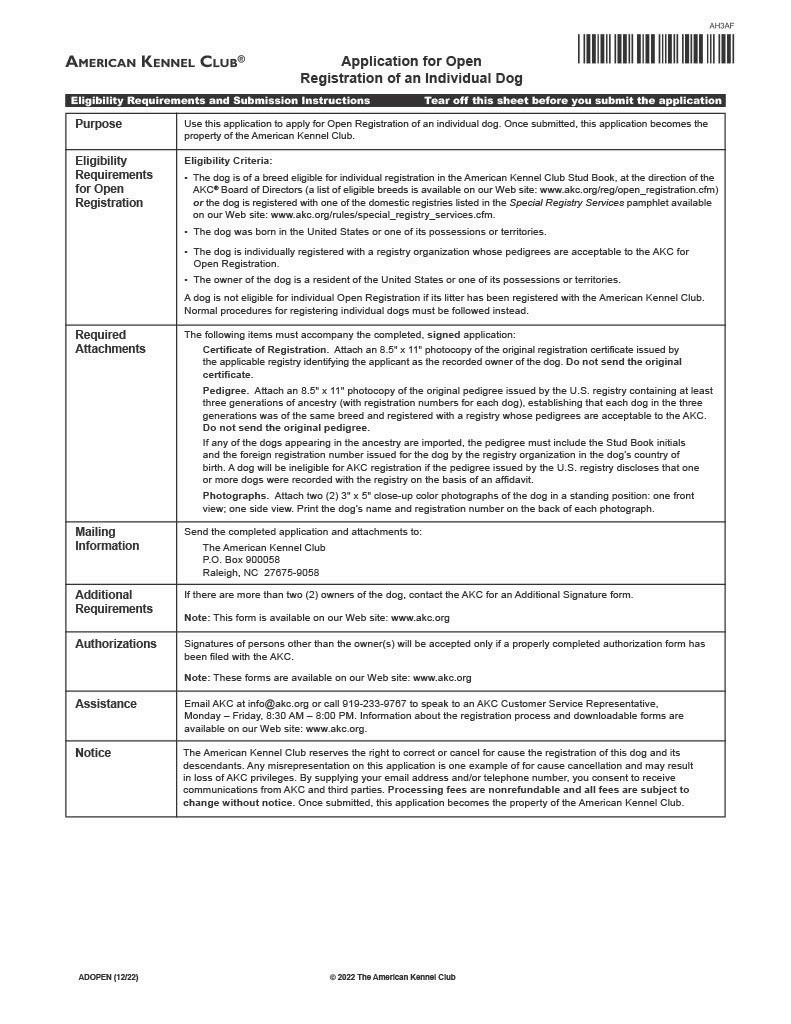
Londer 1243 SW 19th Ave, Fort Lauderdale, FL 33312
